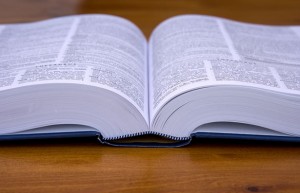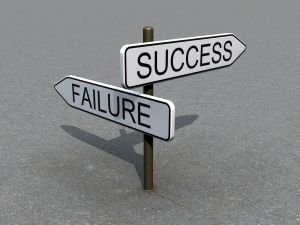Mind in the marketplace (Part 3): A practical primer
10 September 2012 – Christopher Clarke
methods, publicity, entrepreneurialism, profession, consultants, employment, training, Mind in the Marketplace
What kind of knowledge and skills do you need in order to create a viable historical consulting practice?
Becoming a consultant requires more than simply deciding to work for yourself. It requires the shift to a new mindset, because as an independent consultant you become a creature of the marketplace. This means two things: First, you must have something to sell. Second, you must figure out who will buy it. As a consultant it is your job to understand the marketplace and respond to it. The capacity to do this effectively will be a primary determinant of whether or not you succeed in your consulting venture.
Understanding what you have to sell requires a sober and informed assessment of the skill set you have to offer to a potential client. Do you possess the capacity to evaluate and synthesize a complex array of information? Are you the most persistent researcher who ever chased down an original document in an obscure archive? Are you an expert in communicating sophisticated ideas to a public audience without stripping them of their nuanced content? Are you a terrific oral history interviewer?
 Whatever the case, your most valuable skills are the ones that are scarcest in the marketplace. Those skills are the reason why your cell phone will ring. You will be hired as a consultant because of your capacity to accomplish a specific set of (frequently imminent) tasks that your client cannot figure out how to execute with the resources at hand. This is when your expertise commands attention, and when its market value becomes apparent.
Whatever the case, your most valuable skills are the ones that are scarcest in the marketplace. Those skills are the reason why your cell phone will ring. You will be hired as a consultant because of your capacity to accomplish a specific set of (frequently imminent) tasks that your client cannot figure out how to execute with the resources at hand. This is when your expertise commands attention, and when its market value becomes apparent.
Identifying potential clients for your services is one of the ongoing challenges of independent consulting. You must determine who needs the services you have to offer, and who is willing and able to pay for them. For example, if you work as a freelance researcher, then you need to discover all you can about who hires researchers, and for what kinds of tasks. You must then position yourself to meet that need. If you work as a consultant to museums, then you need to understand when and under what circumstances museums hire in the kind of expertise that you have to offer. In the consulting marketplace, knowledge emphatically is power.
Whether you have spent years in the workplace developing a set of high-end skills that build on your historical training, or whether you intend to launch yourself as a consultant on day one using the skills you honed while in graduate school, the basic challenge your face as an independent consultant is the same: you must present your skills and capabilities in a way that makes them understandable and attractive to a potential client. You must identify a likely source of demand for your expertise. And you must deliver that expertise in a way that generates income for you and creates a satisfactory outcome for your client.
Doing this well can be exhilarating and rewarding. Failing to do this well is likely to lead to the early demise of your consulting venture.
Does this sound like your kind of challenge?
— Christopher S. Clarke, Ph.D.
Exhibition Developer and Consulting Historian, Rochester, NY





Does anyone have more information on consulting? In particular, I’m looking for information in the realm of salaries and business management.
Doug — I will be addressing these issues in subsequent postings under the “Mind in the marketplace” heading. However, you could address questions on these or other subjects related to consulting to the members of the NCPH consultants’ committee or to any of the consultants whose names appear on the consultants list.
You can also dig around on your own on the web — if you are a graduate student, then this would be a perfect application for the research skills you are developing.
Thanks so much for posting these. It’s extraordinarily timely for me. I’ve been teaching history at a university for several years. I only just recently began thinking about making the transition to consulting, and I’m in the process of researching some of the questions you ask here. I wonder what (negative?) impact working in academe might have in trying to make it as a public historian/consultant. Plenty of experience in research. Had a career as a journalist before grad school. But no training in public history. I’m very eager to read your follow-up posts. Thanks!